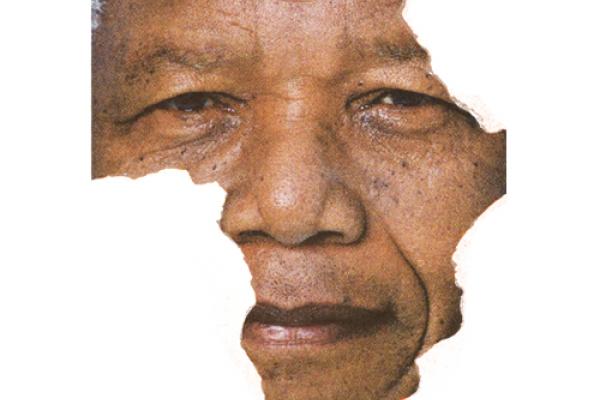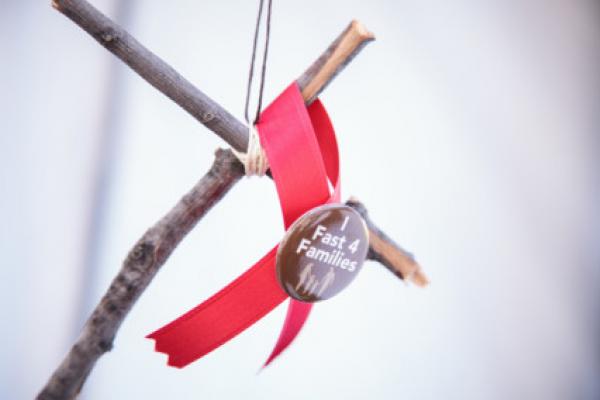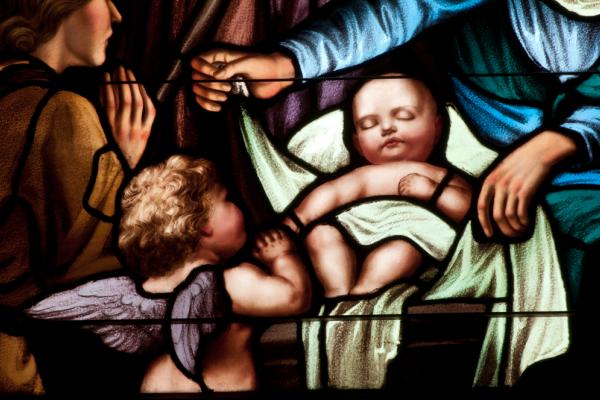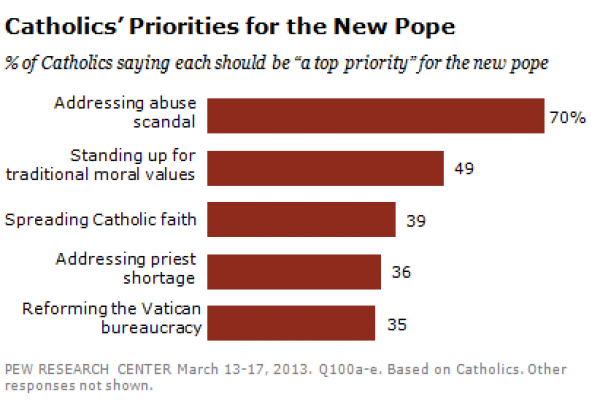There was a lot to celebrate this year for women in the media. But some things aren't changing fast enough. Check out an overview of how the media treated women this year below courtesy of the folks over at Miss Representation.
In response to the passing of Nelson Mandela, Jim Wallis, President of Sojourners, issued the following statement:
"Nelson Mandela was the most important political leader of the 20th century. While Roosevelt and Churchill helped protect the West and the world from Hitler’s Nazism, Mandela heroically exemplified the historic movement against colonialism and racism that oppressed the global south, depicted so dramatically in South Africa’s apartheid. And from a Christian point of view, Nelson Mandela combined justice and reconciliation like no other political leader of his time, shaped by the spiritual formation of 27 years in prison. Mandela’s life has blessed the world with courage and hope. For me, Nelson Mandela has been an ideal of what leaders can be. Being with him after his release from prison, and being present at his presidential inauguration, gave me a sense of a moral authority that I have never experienced with any other political leader."
When Pope Francis cradled the small box said to contain nine bone fragments believed to be the mortal remains of St. Peter, the first pope, he fanned the flames of a long-standing debate over the authenticity of ancient church relics.
Most old churches in Italy contain some ancient relic, ranging from a glass tube said to hold the blood of St. Gennaro in Naples to a section of what is believed to be Jesus’ umbilical cord in the Basilica of St. John of Lateran in Rome. Perhaps the most famous religious relic in Italy — the Shroud of Turin, believed by many to be Jesus’ burial cloth — will go on display again in early 2015, and Turin Archbishop Cesare Nosiglia this week invited Pope Francis to attend its public debut.
But St. Peter’s bones are of particular importance, since they are the very basis — both architecturally and spiritually — for Catholicism’s most important church. And yet the bones were only discovered during a series of excavations in the 1940s, almost 1,900 years after Peter died, in either 64 or 67 A.D.
To join Jim Wallis in prayer and fasting, click here.
I was grateful to be at the beginning of the Fast for Families on November 12. Courageous leaders from many communities were making an incredible sacrifice to remind our leaders what is really at stake in the fight for immigration reform. It was an honor to commission the core fasters, such as my Sojourners’ colleague Lisa Sharon Harper and Eliseo Medina, a veteran organizer and a disciple of Cesar Chavez, by placing crosses around their necks as they began abstaining from food.
After 22 days, the core fasters had grown weak, nearing the point of medical danger. When they decided to pass the fast to a new group, I was humbled to join the effort this way. On Tuesday, in the shadow of the U.S. Capitol, I received the cross from Eliseo that I had given to him three weeks before.
At Tuesday’s ceremony, each of us shared why we were committing to this discipline and willing to subsist only on water for various lengths of time.
Brace yourselves. The calendar has turned over to December, which means that the inevitable discussion on the “War on Christmas” will soon see it’s opening salvo for 2013.
It is inevitable. There will be an outrage by a prominent figure about how we have lost our moral fabric because as someone was buying gifts with money they don’t have to impress people that they don’t always like, the cashier will commit the unthinkable sin of wishing us a “Happy Holidays” instead of “Merry Christmas.”
There will be gnashing of teeth as a town or city somewhere will have a “Holiday Parade” rather than a “Christmas Parade,” as Tulsa had done several years ago. (The parade was subsequently boycotted by one of it’s senators.)
The chorus of those who would profess to be Christians will shout that the “Political Correctness Police” have overstepped yet another boundary and that we should not take the “Christ out of Christmas” as the batch of perceived slights against Christendom freshly reveal themselves for this holiday season.
As a person who would say that Jesus is the most important thing in my life, who has devoted my life to the service of God’s Kingdom, and spends all of my waking moments trying be faithful to that devotion, I have to ask: “What exactly do we mean by putting the ‘Christ back in Christmas'?”
Pope Francis is creating a special commission to deal with the clergy sexual abuse crisis on a global scale, a step that comes amid growing criticism that Francis had not given sufficient attention to the scandal.
Boston Cardinal Sean O’Malley made the announcement on Thursday in the Vatican where he was meeting this week with Francis and the other members of the so-called “Gang of Eight” cardinals that the pope chose to help him reform the Roman Curia.
O’Malley, who is the U.S. bishop with perhaps the most credibility on the abuse issue, listed a range of programmatic ideas for the commission, whose members are expected to include lay people, mental health professionals, and other experts in the field as well as leading churchmen.
Desmond Tutu tells a story of when he was nine or 10 years old and he stood with his mother outside a building where she worked as a cook. This was 1940s apartheid South Africa, where black people were considered inferior in all respects. A lanky, white Anglican priest named Trevor Huddleston walked by in a long cassock, saw his mother, and doffed his hat to her.
The white man would have been expected to ignore the black woman, who amounted to nothing in her society. With one simple gesture, he went out of his way to tell her that her society had it all wrong and that she was equally valued and loved.
That moment made a profound impression upon Tutu, who wrote about it in his book, Made For Goodness.
What seem like very small, ordinary acts often have immense and lasting impacts. And every interaction that we have — even with a stranger on the street — can leave some sort of mark, either helpful or hurtful.

![St. Peter in Prison (The Apostle Peter Kneeling). Photo courtesy Rembrandt [Public domain], via Wikimedia Commons/RNS](https://sojo.net/files/styles/large_rectangle_crop/public/blog/Rembrandt_st._peter_in_prision.jpg)



